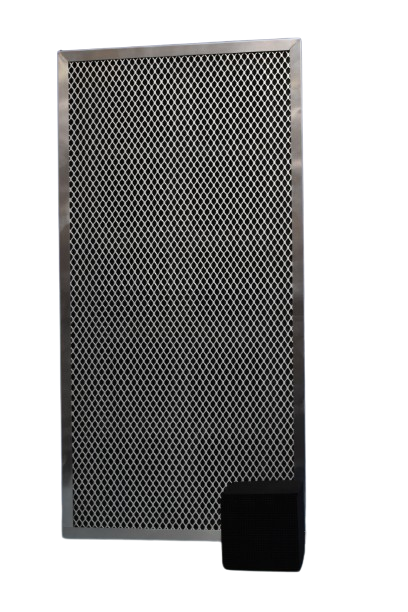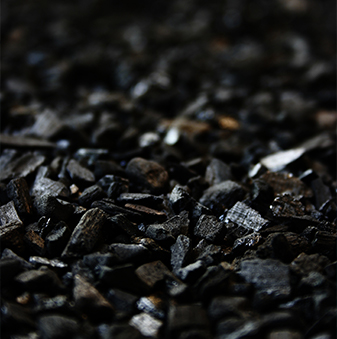| Width (mm) | Height (mm) | Depth (mm) | Initial Pressure Drop (Pa) | Air Flow (m3/hr) |
|---|---|---|---|---|
| 305 | 610 | 51 | 75 | 1700 |
| 405 | 510 | 51 | 75 | 1890 |
| 510 | 510 | 51 | 75 | 2350 |
| 510 | 635 | 51 | 75 | 2950 |
| 610 | 610 | 51 | 75 | 3400 |
| 305 | 610 | 100 | 145 | 1700 |
| 405 | 510 | 100 | 145 | 1890 |
| 510 | 510 | 100 | 145 | 2350 |
| 510 | 635 | 100 | 145 | 2950 |
| 610 | 610 | 100 | 145 | 3400 |
SHOW MORE


Specification
Application
HVAC,AHU,Commercial buildings
Filter Frame
GI/Extruded Aluminium
Media
Monolithic Carbon blocks
Max Temperature (°C)
70
Recommended Final
Pressure Drop (Pa)
450
Related Products
Impregnated granules are produced by adding chemical compounds to activated carbon during the manufacturing process. The added compounds react with the activated carbon, creating a new material with enhanced adsorption properties for specific gases or vapors. The type of impregnating agent used depends on the target pollutant, and different agents can be used to enhance the performance of activated carbon for specific applications.
The use of activated carbon in gas filtration involves passing the gas stream through a bed of activated carbon, where the pollutants are adsorbed onto the surface of the carbon. Activated carbon is highly porous, and its surface area can be as high as 1500 square meters per gram, which makes it an excellent adsorbent material.







.jpg)